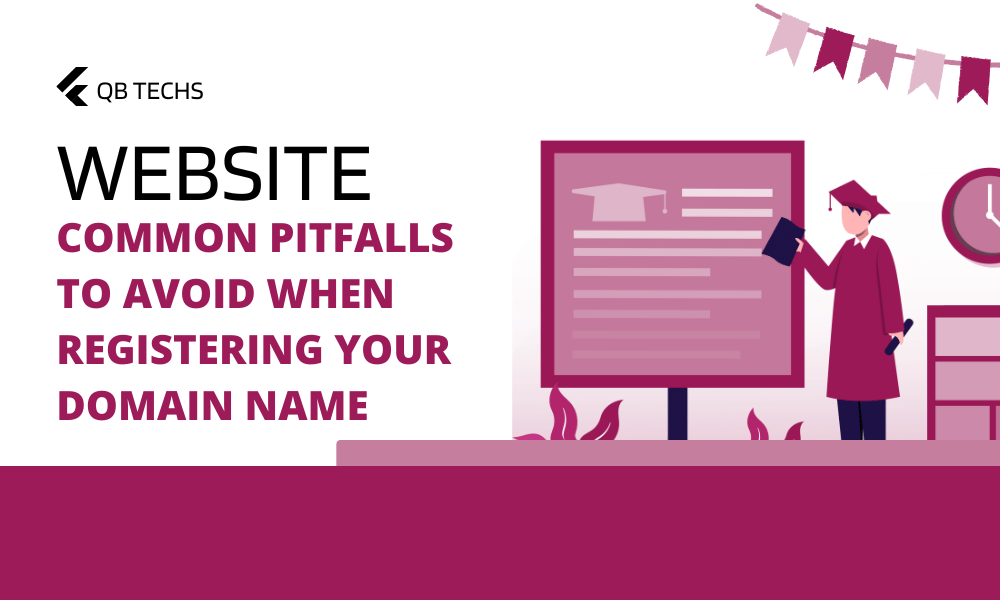Picking a domain name is one of the fundamental steps of setting up a website. It’s not something you want to rush through, as domain name selection actually has a serious impact on how well (or how badly) a site ends up performing.
The right name can elevate your site into the upper echelons of the internet, helping to attract more visitors and bringing success. The wrong name, conversely, can cause all sorts of trouble, like people struggling to remember your web address, spelling it incorrectly when typing it in, or even not wanting to visit your site because they feel the name is shady or unreliable.
This guide explores common mistakes to avoid when picking and registering your domain name.
Using Numbers or Weird Spellings
The best domain names meet these three criteria: they’re short, they’re easy to spell, and they don’t cause confusion when people are trying to say them out loud or type them into their browsers.
If you try to include numbers, symbols, hyphens, homophones, or weird spellings in your domain name, it will only cause confusion among your audience. People will struggle to remember your name, recommend it to others, or even access your site.
Long and Complicated Names
Good domain names need to be easy to remember. The shorter and catchier they are, the better. As such, it does not make much sense at all to use a long or complex domain name.
Even if your business has a long name, try to find a way to condense it for your web address, rather than using the full thing. Remember: the longer your domain name, the more chance of it being mistyped or misremembered.
Picking an Obscure TLD
When you register a domain, you have to pick a top-level domain, or TLD. That’s the bit at the end of a web address, like .com or .org. There are a wide range of TLDs to choose from, and you might be tempted to pick an unusual TLD to stand out or save money.
But there’s no need to do that, and it can backfire. Lesser-known TLDs may seem sketchy to the average user or have weak SEO (Search Engine Optimization). You’re better off picking a trusted, popular TLD, like .com, and there’s no need to worry about price – you can find .com domains in promo and sales events for very reasonable prices.
Forgetting to Check Domain History
You might decide to revive an old, expired domain name that someone had previously been using but failed to renew once their registration period expired. That can be a good way to get your hands on a decent domain name. But don’t forget to dig into its history before registering and paying for it.
There might be backlinks to that domain on sketchy sites, or it might even be blacklisted on certain search engines or platforms if it was linked to scams, like phishing, in the past.
Not Checking if a Similar Domain Already Exists
Before confirming any new domain name registration, it’s always best to do a few checks to see if a similar domain is already in use. You might be happy to see that yourdomain.net is available to register, for example, but someone else might already be using yourdomain.com.
If so, your new site might struggle to succeed, because people might see it as a scam or rip-off of the existing site. It’s much better to take your time, make some changes, and come up with a truly original name instead of a copy.
Overlooking Social Media Handles
More often than not, when you’re setting up a new site, you probably want to register social media profiles with similar names. You can use those profiles to cross-promote your content and attract visitors to your site through social channels.
That’s why, in addition to checking if your domain name is already taken, you should also check that the name, or something close enough, is available on the big social sites like Instagram. Good news if it is, because you can register the same name across your profiles to keep your branding consistent. But if it’s not available, go back to the drawing board and look for another name.
Registering With the Wrong Company
Last but not least, make sure you register with a trusted, respectable, and reputable firm. There are many registrars out there to help you set up your new site, but some are notably more trustworthy than others.
Some registrars will bombard you with sneaky hidden fees or other cheap tricks, like forced automatic renewals that keep you paying for services you don’t want or need. Read reviews and compare options to find the right one to work with.
Avoid These Pitfalls for Domain Name Success
Long names, obscure TLDs, bad registrars – these are just some of the many mistakes to avoid if you want to ensure a smooth and happy domain name registration journey. Do your homework, double-check everything, and be careful when setting up your new site.




Leave A Comment
You must be logged in to post a comment.